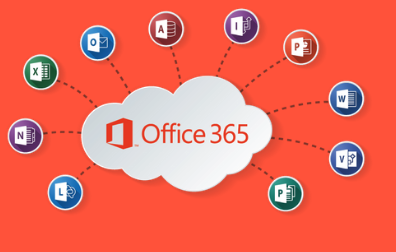SharePoint 2010 and NKOTB
It's been a crazy month with most of my time spent either with subscription customers or at conferences.
It's during these periods that I'm challenged the most, and learn the most. In other words, though I don't want this level of craziness in my life to be a constant, these periods of time are also extremely productive.
For example, over the past few weeks I have been seriously challenged to revisit and reassess my views around SharePoint. As an analyst it is all too easy to fall into the trap of studying a topic, coming to a conclusion (hopefully the right one) and then sticking with that conclusion. Time and the steady pace of progress eventually change everything, and SharePoint is no different in this regard.
It's been my observation that the entire SharePoint community is adjusting to a new reality, and that the thrill has gone. SharePoint is a huge business and will remain so for many years to come. There is no doubt about that. But the rampant excitement that we witnessed in the channel (reseller) community a couple of years ago has simmered down. The reality that there are fewer and fewer greenfield sites (organizations with no SharePoint presence) -- and that buyers of SharePoint are now trying to figure out what to do with it -- is hitting hard.
And if that were not enough, stories of SharePoint growing virally and of both IT and business losing control are so common that managing SharePoint sprawl is now a staple discussion topic. These are sobering topics for SharePoint enthusiasts.
But lest you think this yet another anti-SharePoint blog, let me tell you that you would be wrong in your assumption. If anything I think this is a very positive turning point for SharePoint. Because now people might actually start to realize the full value and promise of SharePoint rather than just buy into the hype. The community finally seems to accept that SharePoint is not the only game in town, that SharePoint may have a big footprint in many organizations, but that it nevertheless has to co-exist with many other systems, few of which are going anywhere fast.
Likewise there is an increased awareness that SharePoint cannot be all things to everyone. To quote our friend Richard Harbridge "You can build your new garage on the third floor, but why would you?" With sufficient time and resources SharePoint can do anything, but oftentimes that time and resource allocation can become prohibitively high. Trading off the pro's and con's of extending SharePoint is a hot topic today in many enterprises -- a far cry from just a year or two ago where there was no conversation at all, extending SharePoint was a given. With this maturity and increased understanding of marketplace complexities, SharePoint is finally starting to blossom. People are thinking twice before deploying it for unsuitable environments and are recognizing both SharePoint's very real strengths, alongside its very real weaknesses. SharePoint is not a silver bullet, but then again nor is any product.
So if the SharePoint community is changing and adapting to a new reality, what about me? Well I for one am learning to better understand that of all the products we cover in our research at the Real Story Group, none is as dependent as SharePoint is on the community that surrounds it. The SharePoint community essentially drives the product, explores it, decides its future, tests it, and makes it work in the real world. SharePoint is far closer to an ideal community open source project than most community open source projects. You may not be able to play much with the source code, but you can have a real impact -- and can interact with an unequaled ecosystem of fellow SharePoint travelers.
SharePoint is not cheap, it does not do records management nor web content management well, and it has a tendency to run out of control, it handcuffs you into a specific stack and agonizingly slow, triennial update cycle. But despite all that, SharePoint believers are as passionate about their love for the product as Beleibers are for Justin. And that's a passion that few other products have associated with them. I may not be a fan of Justin Beiber, just as I was none too keen on David Cassidy, The Osmonds or NKOTB, but I admire what they all achieved, something that went far beyond the music (in their cases it probably had to...).
And that is what SharePoint has done, it has built a world unto itself, one full of loyal and a generally very decent bunch of devotees. One that has achieved some impressive milestones and broken through many barriers, in what are increasingly competitive, difficult and complex situations.




